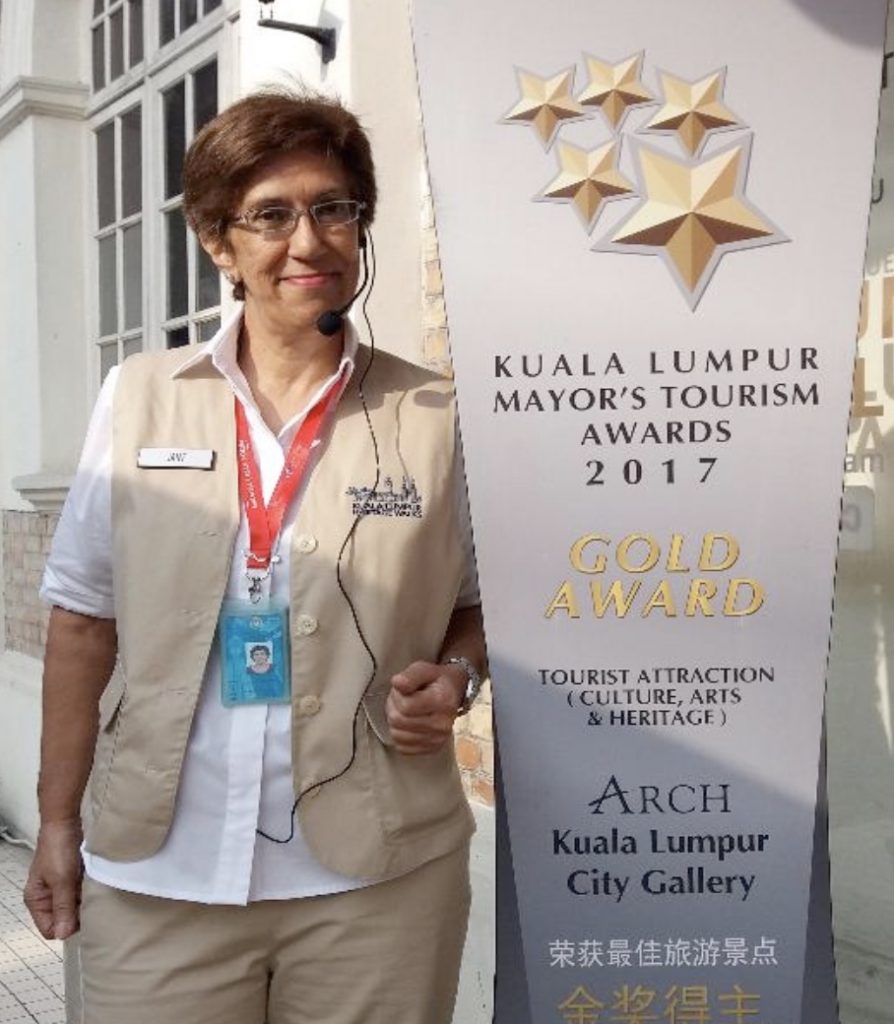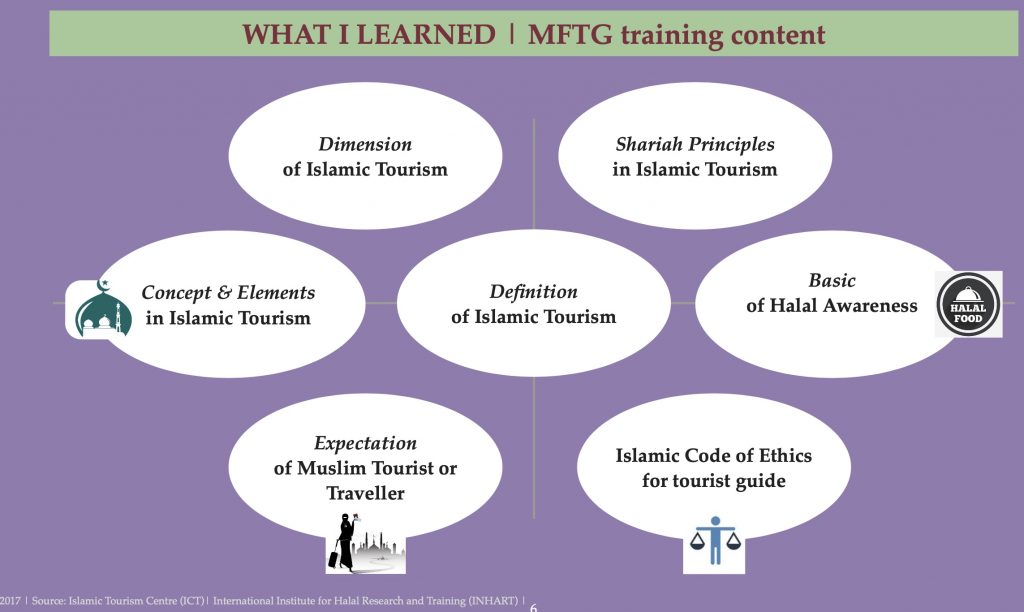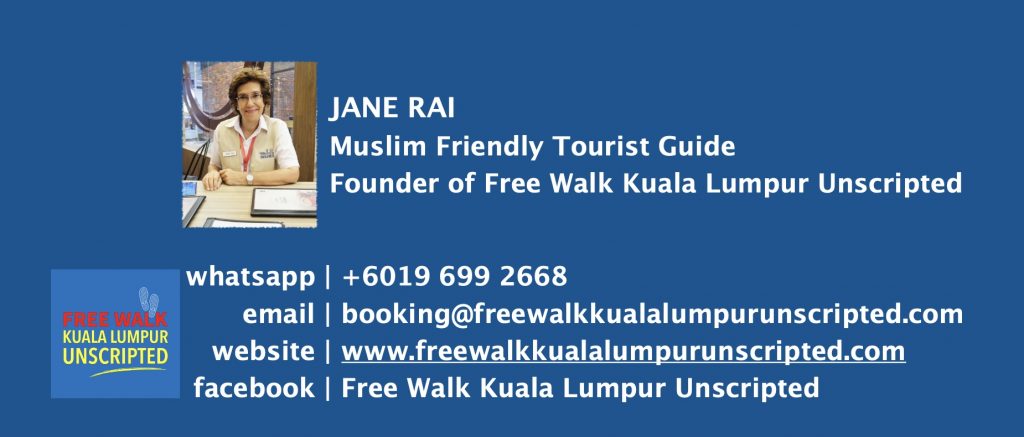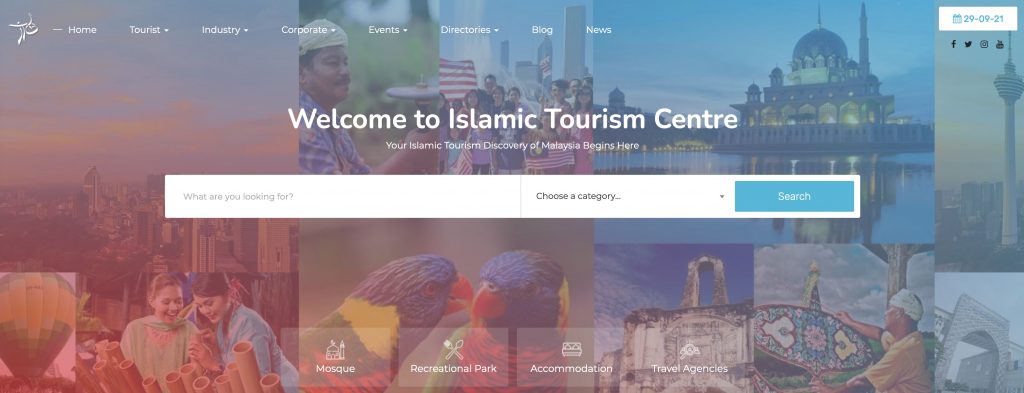
30 Sep, 2021
Veteran Malaysian tour guide proves high-touch can beat high-tech in post-Covid era
The tour guide is one of the many travel industry professions threatened by the high-tech revolution. But one award-winning Malaysian guide of Punjabi-Sikh ethnic origin who speaks English, Malay, Hindi and Tamil can prove that high-touch delivers in ways high-tech never can. Upskilling herself with a high-touch Muslim-Friendly Tour Guide training course enriched her personally and professionally. The increased knowledge and socio-cultural understanding also helped her walk the talk of the tourism promotion slogan “Malaysia Truly Asia”, the ASEAN Socio-Cultural Blueprint and the UN Sustainable Development Goals.
No high-tech system comes even close.
On the surface, the Muslim Friendly Tour Guide (MFTG) course did not seem to be anything new when launched in 2017 by the Islamic Tourism Centre under the Ministry of Tourism and Culture, Malaysia. A Muslim-majority country that ranks the world’s top destination for Muslim travellers, Malaysia has historically hosted millions of non-Muslim visitors, and has many non-Muslim tour guides. As Islamic mosques, museums and many other places of interest are featured on Malaysian tours, the ITC felt that a properly structured and standardised training course would benefit both hosts and visitors, says Director Dato Mohammed Razip Hasan.
In 2018, Jane Rai, one of Malaysia’s top guides, signed up. A former reporter, she left a national newspaper to pursue a career in tourism in 1989. Now 62, she has since guided thousands of tourists nationwide, held several senior managerial posts at destination management companies and is now a Tour Product Development Specialist at Going Places Tour, an SME specialising in backpacker travellers and heritage walking tours. In 2018, she initiated a personal project called ‘Keeping Kuala Lumpur’s Heritage Alive’.
The MFTG training fitted in perfectly. “I signed up for it more out of curiosity,” she says. “I did not know what to expect but I was excited. I went into it with an open mind.”

Along with 30 other guides, she enjoyed two days of lectures by prominent speakers, discussions and role-playing. On the third day, the trainees went on a field trip to a mosque to understand the prayer rituals, one of the five pillars of Islam. They met the Imam, were explained the dress code, various facilities, as well as numerous do’s and don’ts. In Malaysia, visitors are allowed into mosques under strict rules of decorum, just like any other place of worship.
Today, Jane Rai calls the course “a really powerful experience.” She can now talk intelligently and sensitively about prayer times, halal standards, the hijab, washroom requirements, mosque minarets and arches and much more. She knows more about Islamic history and how to address Islamic spiritual personalities correctly.
One interesting thing she learned was the similarities with her own Sikh faith, especially the rules of travelling. Both the Sikh spiritual leader Guru Nanak (Peace Be Upon Him) and the Islamic Prophet Mohammad (Peace Be Upon Him) were “frequent travellers” and adhered to rules of conduct which she found to be remarkably similar.
“That was new to me,” she said. “If you don’t go into these topics in detail, you never learn. Many things I didn’t know at all, others I learned more about in greater depth.”
Over the years, she has hosted Caucasians, visitors from the Middle East, India, Turkey, China, Japan and Korea. Her Heritage Walks were attracting more Malaysians of all ethnic backgrounds and expatriates. She has also done group tours, FITs, private families, students, conference delegates and Malaysian corporate executives.
When tourism resumes after the Covid-19 crisis, she says, Muslim Friendly tourism will be in high demand, especially in the Health & Wellness sector, and the Tour Guide course will be a big advantage.
“I can now do much better itinerary planning. I know what to do when I am looking for accommodation, restaurants, for example. I can identify places and spots which are Shariah compliant with the prayer facilities and washrooms. I can take visitors to mosques and explain the do’s and don’ts.”

The role-playing in the course also trained her how to answer questions. These range from frequent ones about the hijab to the concept of halal food and fasting in Ramadan to heavy-duty questions which she readily admits to being beyond her scope. Many visitors with an obvious anti-Muslim bias ask “quite bizarre” questions. She either addresses them individually, or claims ignorance and promises to get back to them.
She also gets the raised eyebrows. Visitors are puzzled by what exactly is a Muslim friendly tourist guide? Why is a woman of Punjabi Sikh ethnicity doing these tours in the first place? Muslim guests ask about where she learnt all this and then are amazed that Malaysia has such a course at all.
Not being a Muslim works to her advantage by raising her credibility. She says, “The most important thing is to be mindful of the situation and the people you are dealing with. Then, you can do your job in a more confident manner and without being awkward. The guests get a sense of assurance that you know what are you talking about. I can experiment with different ways of story-telling and have a better conversation with both Malay and international tourists.”
She repeatedly stresses the need for an open mind. “I am a great believer in connecting with people. I respect all faiths. I never undermine any other religions or practises.” In daily life, she says, people are told, shown or hear things about other faiths that appear not to make sense. That, she says, is because they look at it from their own respective cultural background and then try to judge. That will not happen if they keep an open mind and put their perspectives in context.
She praises the way the course was organised and encourages other guides to sign up. She would also like to see the Islamic Tourism Centre expand it worldwide. “The networking was brilliant,” she says. “I don’t know of any other course like this anywhere in the world.”

When the Covid-19 crisis forced a shift to high-tech, Jane Rai fell in line. As the Heritage Walking Tours were no longer physically possible, her 19-year-old nephew suggested she digitalise them to Virtual Reality tours. A tech company Lokalocal stepped in to help, using drones to record 360-degree images and embellish them with sounds and visual effects. “It’s very exciting,” she says. “I am seeing a lot of interest. I can now do tours from my home for guests from anywhere in the world.”
Although Jane Rai highlights the personal and professional benefits, the value of the course goes well beyond.
(+) Malaysia advertises its multi-racial society as “Malaysia Truly Asia.” As a female of Indian-Punjabi-Sikh origin living in a Muslim-majority country, she walks the talk of the slogan.
(+) Malaysia is a member of ASEAN whose leaders have signed a document known as the Socio-Cultural Blueprint to help their peoples avoid racial-ethnic conflict and instead build on that diversity as an asset. Jane Rai does that, too.
(+) Finally, by promoting understanding, friendship and harmony, Jane Rai is implementing the UN Sustainable Development Goals, the most important one of which is to build human peace and reduce conflict.
Interestingly, Jane Rai had never heard of the ASEAN Socio-Cultural Blueprint and knew just a little about the UNSDGs. Perhaps expanding tourism education curriculums to cover those nation-building agendas may help leaders and policy-makers ensure their pie-in-the-sky political declarations deliver better trickle-down results on the ground.
Editor’s Note: Aside from her passion for tour guiding, Jane Rai loves singing and also offers voice-over talents to private companies. Her thirst for knowledge is boundless: She is currently attending classes for Spanish and German.





Liked this article? Share it!